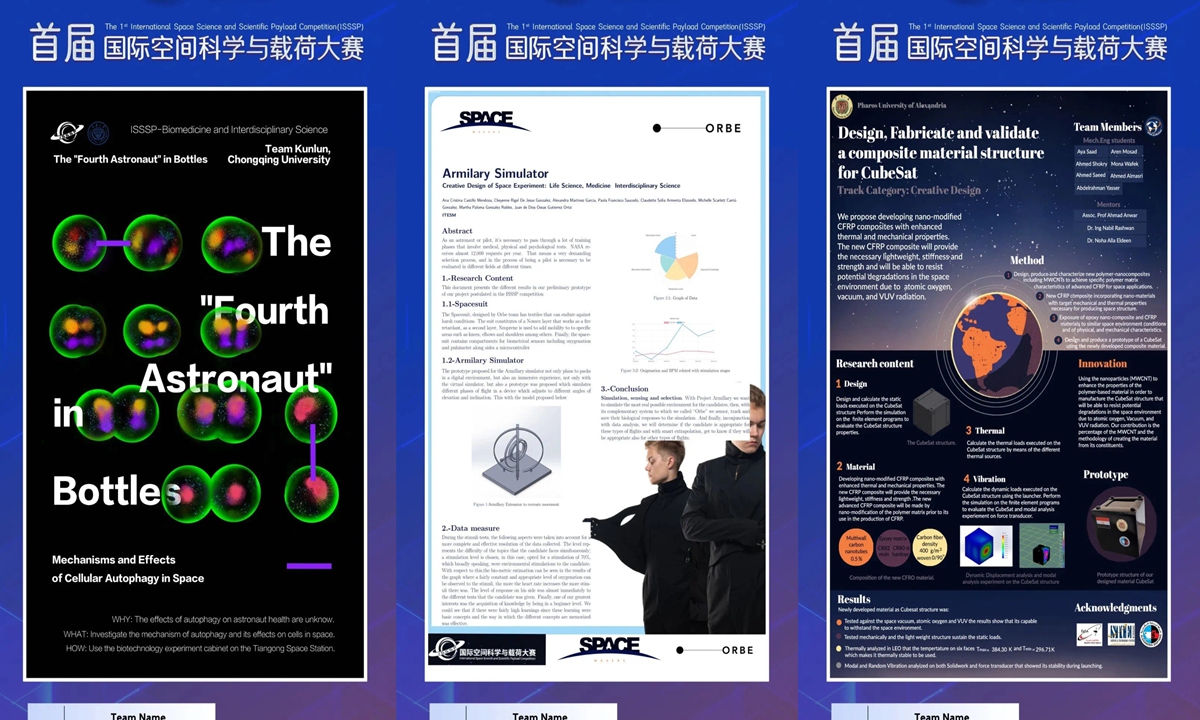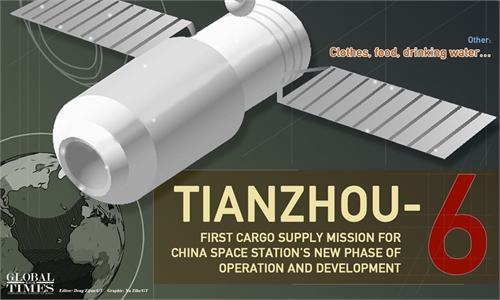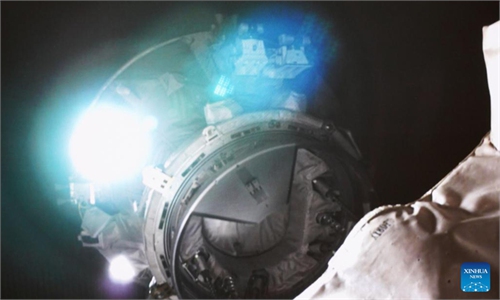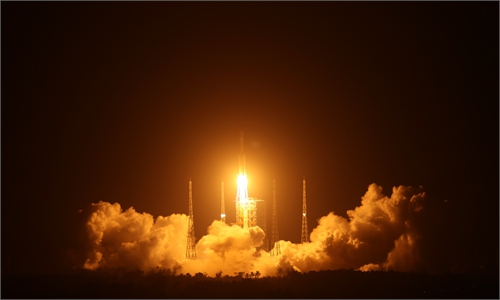
Posters of student groups at the first International Space Science and Scientific Payload Competition, which opens in Foshan, South China's Guangdong Province on May 11, 2023, welcoming youths from across the world to win a "ticket" to participate in the China Space Station and the International Space Station.
From space robots to greenhouse gas remote sensing, from placing fish on the space station's dinner table to mutagenesis of rose essential extraction… The first International Space Science and Scientific Payload Competition kicked off in Foshan, South China's Guangdong Province on Thursday, attracting youths from across the world to vie for a "ticket" to participate in the China Space Station and the International Space Station (ISS).
Despite an ever complex world where tensions are rising among global players, space cooperation and people-to-people exchanges remain robust and vibrant, bringing a channel for connection that transcends differences and promotes the building of a shared future for mankind, students and experts from the US and Europe told the Global Times at the event.
The competition is the first international aerospace competition in China aimed at gathering and nurturing outstanding global talents and projects in space science and payload technology. The winning projects will be recommended as candidates for flights to the China Space Station and the ISS, the Global Times learned on Thursday.
The competition is jointly initiated by the Chinese Institute of Electronics, Beijing Institute of Technology, the International Academy of Astronautics, Chinese Society of Astronautics, and China Space Foundation.
Themed "A Shared Space for a Better Future," it is committed to promoting significant scientific discoveries and innovative technological breakthroughs in the aerospace field, driving the civil use of aerospace technology and promoting a sharing mechanism for innovative achievements to benefit all humanity.
Olivier Contant, the French-American Executive Director of the International Academy of Astronautics (IAA), emphasized the academy's longstanding commitment to promoting peaceful collaboration among countries during an exclusive interview with the Global Times. "The IAA has been dedicated for over 60 years to enabling all nations to participate in space programs. Our mission is to foster global unity through research, conferences, technologies, and collaboration, all focused on the peaceful use of space. In the scientific world, you don't have these boundaries, politics."
"Competition always happens, but that's normal. Our focus remains on promoting peaceful collaboration for the benefit of mankind regardless what's happening. One way for the Academy to do it is by conducting more than 100 space studies with world class experts based on international consensus." he said.
The competition has attracted student groups from more than 30 countries including Spain, Italy, Egypt, Russia, Pakistan, Argentina and Mexico. There are 116 teams - 81 from China and 35 from abroad. Thirteen high school groups were invited to participate as well.
úrsula Andrea Martinez álvarez and Gigor Dan-Cristian, PhD students in aerospace engineering from the Technical University of Madrid, Spain, told the Global Times that their project, thermocapillary-based control of a free surface in microgravity, has been selected to enter the final round of the competition.
"China's advance in space has been real fast, and it would be amazing to internationally cooperate among different countries and also use the Chinese space station as a platform to perform experiments from people worldwide," úrsula told the Global Times.
Speaking of recent tensions between China and the US in space, she said that "historically as space advancement is such a difficult matter, it has always needed collaboration between nations, and history has demonstrated that we have been able to surpass the political tensions for the good of science. I believe that this is actually a channel to show that we can cooperate and understand each other."
Other projects from the college student teams include an intelligent snake-shaped space robot presented by the Beijing Institute of Technology. Equipped with flexible pillars, it is lightweight and compact, providing technical support for internal structural monitoring and surgical functions that involve human-robot collaboration.
A team from Islamabad, Pakistan presented research on the impact of high speed and high altitude on the positioning of the BDS GNSS receiver, while Samara National Research University from Russia presented a study on antibiotic resistance in intestinal bacteria in a space environment.
High school students also impressed the audiences with a number of brilliant ideas. A team from Beijing presented the idea of space-induced mutagenesis breeding for roses to increase their oil production, as rose essential oil is one of the most expensive oils in the world.
The team from Foshan's Dali High School brought researches on the cultivation of multi-generation mudskippers in the space station. The experiment aims to study amphibious fish that can be cultivated in the space station for long periods. The fish is a tasty and nutritious dish to enrich astronauts' menus on their dinner table.
Li Shiyi, a freshman at Dali High School, told the Global Times that the project was inspired by the experiments taught by Shenzhou-13 taikonaut Wang Yaping while in orbit.
"During the Tiangong classroom, Wang talked about experiments involving fish and rice cultivation, and we extended it to the mudskipper. We noticed that the food they ate was always from vacuum-sealed bags brought from the ground, which may not be very fresh. So I hope that by conducting this experiment, they can eventually enjoy a hot bowl of fresh fish soup in space one day," Li said.
Li said that she wants to become a taikonaut like Wang after she grows up. "My wish is for China's space station to develop faster and better. I also hope to have more exchanges with countries like the US that have more advanced space technology. By doing so, we can use our mature and advanced technology to help countries that have relatively lagged behind in space development, making the world a better place."
At the opening ceremony of the finals, Zhang Feng, Chairman of the Chinese Institute of Electronics, said they will continue to utilize such conference platform to comprehensively showcase cutting-edge technologies in the field of life electronics, explore future visions, and promote extensive collaboration in the field of life electronics.
"Young talents are where the national innovation vitality and the hope for technological development lie. In the process of continuously creating new history in China's aerospace industry, a large number of young aerospace professionals have taken on major responsibilities, showcasing the spirit of Chinese youth in the new era with their radiance and vitality," Yu Miao, Director of the International Cooperation Center of China Aerospace, said while addressing the opening ceremony of the event.




